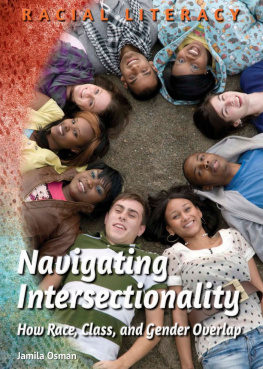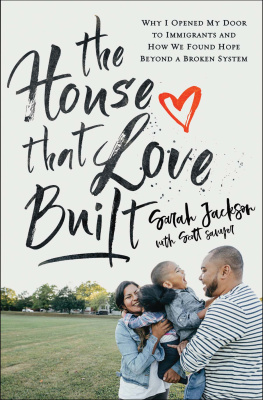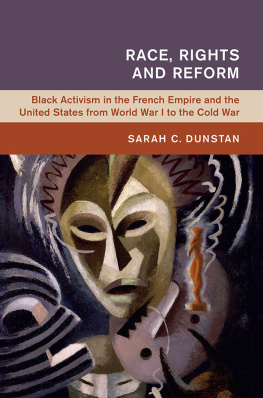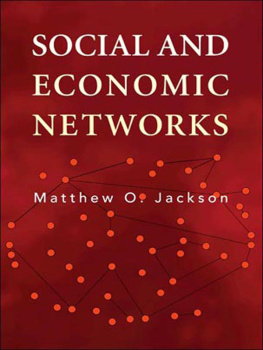Sarah J. Jackson - #HashtagActivism: Networks of Race and Gender Justice
Here you can read online Sarah J. Jackson - #HashtagActivism: Networks of Race and Gender Justice full text of the book (entire story) in english for free. Download pdf and epub, get meaning, cover and reviews about this ebook. year: 2020, publisher: MIT Press, genre: Politics. Description of the work, (preface) as well as reviews are available. Best literature library LitArk.com created for fans of good reading and offers a wide selection of genres:
Romance novel
Science fiction
Adventure
Detective
Science
History
Home and family
Prose
Art
Politics
Computer
Non-fiction
Religion
Business
Children
Humor
Choose a favorite category and find really read worthwhile books. Enjoy immersion in the world of imagination, feel the emotions of the characters or learn something new for yourself, make an fascinating discovery.

- Book:#HashtagActivism: Networks of Race and Gender Justice
- Author:
- Publisher:MIT Press
- Genre:
- Year:2020
- Rating:5 / 5
- Favourites:Add to favourites
- Your mark:
- 100
- 1
- 2
- 3
- 4
- 5
#HashtagActivism: Networks of Race and Gender Justice: summary, description and annotation
We offer to read an annotation, description, summary or preface (depends on what the author of the book "#HashtagActivism: Networks of Race and Gender Justice" wrote himself). If you haven't found the necessary information about the book — write in the comments, we will try to find it.
#HashtagActivism: Networks of Race and Gender Justice — read online for free the complete book (whole text) full work
Below is the text of the book, divided by pages. System saving the place of the last page read, allows you to conveniently read the book "#HashtagActivism: Networks of Race and Gender Justice" online for free, without having to search again every time where you left off. Put a bookmark, and you can go to the page where you finished reading at any time.
Font size:
Interval:
Bookmark:
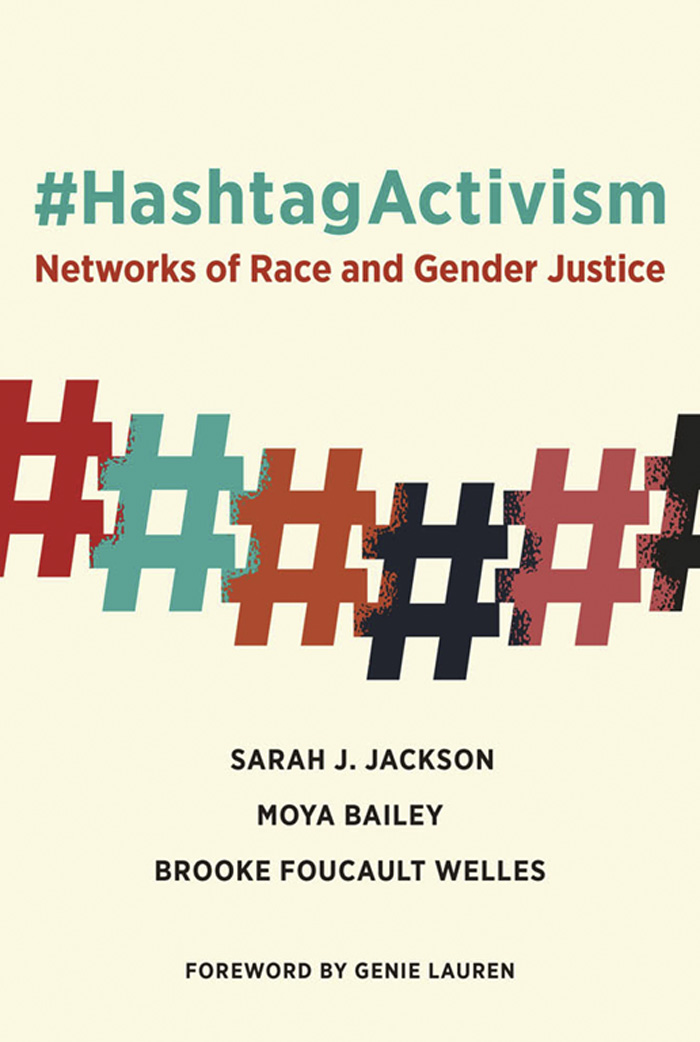
Sarah J. Jackson, Moya Bailey, and Brooke Foucault Welles
foreword by Genie Lauren
The MIT Press
Cambridge, Massachusetts
London, England
2020 Massachusetts Institute of Technology
All rights reserved. No part of this book may be reproduced in any form by any electronic or mechanical means (including photocopying, recording, or information storage and retrieval) without permission in writing from the publisher.
This book was set in ITC Stone Serif Std and ITC Stone Sans Std by Toppan Best-set Premedia Limited.
Library of Congress Cataloging-in-Publication Data
Names: Bailey, Moya, author. | Welles, Brooke, author. | Jackson, Sarah J. (Sarah J.), author.
Title: #hashtagactivism : networks of race and gender justice / Moya Bailey, Brooke Welles, Sarah J. Jackson ; foreword by Genie Lauren.
Description: Cambridge : The MIT Press, 2020. | Includes bibliographical references and index.
Identifiers: LCCN 2019009509 | ISBN 9780262043373 (hardcover)
Subjects: LCSH: Hashtags (Metadata) | Social media
Classification: LCC P302.37 .B35 2020 | DDC 361.201/4--dc23
LC record available at https://lccn.loc.gov/2019009509
10 9 8 7 6 5 4 3 2 1
d_r0
For those who insist on being heard
Genie Lauren* (@MoreAndAgain)
One of the most recognizable aphorisms about the plight of Millennials is that we are overeducated and underpaid. The causes and effects of this have been detailed in the abstract, but for me this meant that when I joined Twitter on December 22, 2008, I was working two jobs to make my student loan payments every month. My supplemental job at a popular midrange clothing retailer would provide me with discounted business attire and some extra cash, while my meatier employmentworking the night shift in the communications department of a twenty-four-hour, international corporate law firmwould provide me with a salary, benefits, and lots of downtime to tweet.
Initially, tweeting was not natural to me. Blogging had become popular about a decade earlier, and yet I had a difficult time understanding why I would publish my own thoughts on the internet. My personal blog, MoreAndAgain, in its earliest days was often neglected. Compounded by Twitter having the reputation of being the site where navel-gazers talked about what theyd just eaten, in 140 characters or less, and youll understand why I spent much of my time on Twitter stumped. Although an acquaintance helped me find my cohort in a group of under- or unemployed insomniacs who kept me company as I counted down the hours until I could clock out, even that small community seemed to lack a raison dtre. It was basically Seinfeld, the show about nothing, but with much looser relationships. Twitter didnt become compelling for me until the protest following the 2009 presidential election in Iran and the resulting hashtag #IranElection.
I have always been the type of person who is sensitive to the plight of other people. As a child, I wanted to aid those who were less fortunate. In high school, friends and I walked out of school to protest the acquittal of the police officers who were responsible for killing Amadou Diallo. And, as I continued my education, it became important for me to learn about the ways people were treated unfairly around the world. When the #IranElection hashtag dominated Twitters global trending topics, it was the first time I had a front-row seat to a revolution. Suddenly, this platform, which previously had seemed rather pointless, allowed me to communicate directly with people on the ground in Iran, and I wanted to learn everything. I spent less time tweeting with fellow New Yorkers in my Twitter community and more time reading the minute-by-minute updates of protesters several time zones away. I had seriously lucked out, having a job that required me to be awake during times of peak #IranElection activity. Retweets, not nearly as sophisticated then as they are now, led me to news accounts that were updating their feeds much faster than twenty-four-hour news networks were airing their coverage on television. My Twitter feed, made up of roughly 150 people, finally had a reason for being: to spread the word and unpack what it meant with the help of witnesses and experts. What are you doing? would soon become Whats happening?
One of the first mainstream news outlets that seemed to share this mission and fully embrace Twitter was CNN. Retweeting the accounts of journalists on the ground using the #IranElection hashtag seemed to lend legitimacy to the user-generated idiosyncrasies that made sharing and finding information easier. Being stuck in an office for hours meant I wasnt able to turn on a televisionand streaming television broadcasts online wouldnt be possible for years to comebut I could log on to Twitter and refresh my Twitter feed to make sure I had the latest news. I didnt realize it at the time, but the way tweeters engaged in this movement would become the framework for signal-boosting information on Twitter. In the years that followed, creating a hashtag would become the artery for organizing resistance.
In the years after #IranElection, my own Twitter community grew at a steady pace. The more I engaged in Twitter conversations, the more people I was able to converse with. When the #FailWhale wasnt spoiling our fun, we used hashtags to share tunes (#MusicMonday), share grievances (#HereBeforeOprah), and even share favorite tweeters (#FollowFriday). In just three years after its inception the platform had allowed users to create a taxonomy, with no major overhaul of the underlying program; this feature would later be adopted by other social media networks such as Facebook. Regular tweeters became so accustomed to organizing tweets by hashtags that when someone decided to hashtag a name, it immediately made sense. On my Twitter feed, the first occurrence of a hashtagged name was #TroyDavis.
#TroyDavis first appeared in my Twitter feed on September 11, 2011ten days before Troy Davis himself was scheduled to be executed by the State of Georgia. Davis had been tried for and convicted of the murder of police officer Mark MacPhail, but recanted testimony and new evidence pushed activists to argue there was too much doubt to warrant his execution, thus leading to the affiliated hashtag #TooMuchDoubt. Through the hashtags, a Change.org petition was shared encouraging tweeters to sign and demand Daviss clemency. The petition, which garnered 258,505 signatures, was addressed to the State of Georgias Board of Pardons and Paroles and Chatham County district attorney Larry Chisolm.
It is impossible to overstate how penetrative #TroyDavis was on Twitter, from September 11 through September 21, the day Davis was unjustly executed. I cannot recall a single tweeter I followed who not only tweeted about #TroyDavis but also called on DA Chisolm and the Supreme Court of the United States as the justices deliberated over whether or not to stay his execution. There was even a vigil on Twitter: ten minutes without a single tweet at 7:00 p.m. on September 21, in the hopes it would sway the SCOTUS decision. Though our mission seemed to be failing at every turn, my entire Twitter feed remained engaged, making calls, encouraging action, saying virtual prayers. Briefly, it looked as though the SCOTUS decision would go our way, after Jeffrey Toobin reported that the deliberation was unusually long. Unfortunately, our efforts to save one mans life were unsuccessful. When the DA failed to act, followed by the SCOTUS failing to act, the result was the states murder of Troy Davis at 11:08 p.m. In that moment, I could feel the devastation ripple across Twitter. We contemplated what it meant that all these people could act in unison and still not save one life, and what it meant to be at the mercy of the criminal justice system.
Next pageFont size:
Interval:
Bookmark:
Similar books «#HashtagActivism: Networks of Race and Gender Justice»
Look at similar books to #HashtagActivism: Networks of Race and Gender Justice. We have selected literature similar in name and meaning in the hope of providing readers with more options to find new, interesting, not yet read works.
Discussion, reviews of the book #HashtagActivism: Networks of Race and Gender Justice and just readers' own opinions. Leave your comments, write what you think about the work, its meaning or the main characters. Specify what exactly you liked and what you didn't like, and why you think so.

